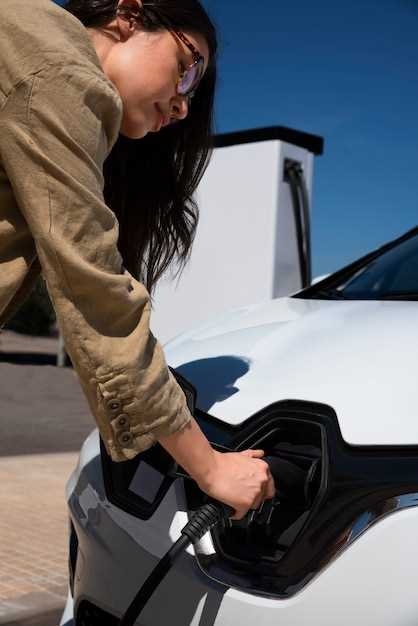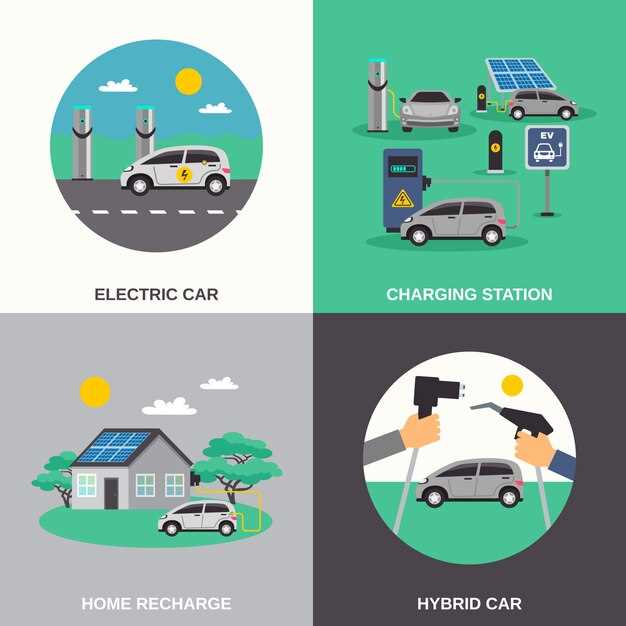

In an era where sustainability and energy efficiency are becoming crucial, solar battery chargers for vehicles have emerged as a notable investment. These innovative devices harness solar energy to keep your vehicle’s battery charged, providing a green alternative to traditional charging methods. As the world shifts towards renewable energy sources, understanding the benefits of solar chargers can help vehicle owners make informed decisions about their charging solutions.
One of the primary advantages of investing in a solar charger is the potential for significant cost savings. By using solar power, vehicle owners can reduce their reliance on grid electricity, resulting in lower energy bills and less environmental impact. Additionally, solar battery chargers are particularly beneficial for individuals who own recreational vehicles, boats, or classic cars that are not used daily, ensuring that the battery remains in optimal condition without incurring extra electricity costs.
Moreover, solar battery chargers are equipped with advanced technology that allows them to efficiently convert solar energy into usable power. Many models offer features such as automatic voltage regulation and overcharge protection, which prolong the life of your battery. Investing in a quality solar charger not only boosts energy independence but also enhances the overall longevity and performance of your vehicle’s power system.
Evaluating the Cost-Effectiveness of Solar Battery Chargers
When considering the investment in solar battery chargers for vehicles, evaluating their cost-effectiveness is crucial. Solar battery chargers harness energy from the sun to charge your vehicle’s battery, offering a renewable and sustainable power source. The initial cost of these chargers can vary widely, influenced by factors like capacity and brand. However, examining the long-term savings and benefits can provide a clearer picture of their financial viability.
One of the most significant advantages of solar battery chargers is their minimal maintenance requirements. Unlike traditional chargers that might necessitate frequent inspections and replacements of components, solar chargers are usually durable and designed to withstand harsh weather conditions. This longevity translates to lower long-term costs, as fewer replacements and repairs are needed over time.
Another important consideration is the cost of electricity that can be saved by using solar energy. By utilizing solar power to recharge your vehicle’s battery, you can significantly reduce your reliance on grid electricity. This reduction can be particularly substantial for drivers who regularly rely on their vehicles, leading to significant savings on energy bills.
In summary, the investment in solar battery chargers can be justified when considering their low maintenance costs, reduced reliance on grid power, and the sustainability they offer. Balancing the initial investment with potential long-term savings is essential for making an informed decision about their effectiveness for your vehicle.
Best Practices for Maintaining Vehicle Batteries with Solar Chargers

Using a solar charger for your vehicle battery is an efficient and eco-friendly solution, but proper maintenance is crucial to maximize its lifespan and performance. Here are some best practices to ensure optimal functionality of both the solar charger and the vehicle battery.
First, place the solar charger in a location where it receives maximum sunlight exposure. Ensure that there are no obstructions, such as trees or buildings, that might block sunlight throughout the day. Regularly check the positioning and make adjustments as needed to maintain efficient solar energy absorption.
Consistently clean both the solar panels and the battery terminals. Dust, dirt, and debris can reduce the efficiency of the solar charger. Use a soft cloth to wipe the solar panels, and a mixture of baking soda and water can effectively clean corrosion from battery terminals. Make sure to disconnect the battery before performing any cleaning to prevent damage or electric shock.
Monitor the battery’s state of charge regularly. Even with a solar charger, vehicle batteries can lose charge over time. Use a multimeter to check voltage levels and ensure they remain within the optimal range. If voltage drops significantly, consider adjusting the solar charger’s placement or checking for potential issues with either the charger or the battery.
Incorporate a regular inspection schedule for both the solar charger and the battery. Look for signs of wear or damage, such as frayed wires or cracks in the battery casing. Early detection of issues can save you from more significant problems later on.
Finally, understand the specific needs of your vehicle’s battery type. Different batteries, such as lead-acid or lithium-ion, have unique maintenance requirements. Ensure your solar charger is compatible with your battery type to prevent potential damage from improper charging practices.
Choosing the Right Solar Charger for Your Vehicle’s Needs

Selecting the appropriate solar charger for your vehicle is crucial for ensuring efficient energy management and minimizing maintenance requirements. With a variety of options available on the market, understanding your vehicle’s specific needs is essential.
Power Requirements: Begin by assessing the power requirements of your vehicle. Electric vehicles (EVs) and hybrids may need more powerful chargers compared to traditional gasoline cars. Check the battery capacity and the voltage to ensure compatibility with the solar charger you choose.
Charger Type: There are different types of solar chargers: trickle chargers, portable chargers, and robust systems designed for off-grid usage. Trickle chargers, for instance, are ideal for maintaining battery health during periods of inactivity, while portable chargers offer flexibility for various applications.
Solar Panel Quality: Opt for a solar charger with high-efficiency solar panels. Monocrystalline panels tend to offer better performance compared to polycrystalline panels, especially in low-light conditions. Look for chargers that provide a good balance between size and energy output.
Weather Resistance: Consider the environment in which you will be using the solar charger. A unit that is durable and weatherproof can reduce maintenance issues over time. Look for products that have a high IP rating, indicating they are resistant to dust and water.
Ease of Installation: Choose a solar charger that is easy to install and comes with clear instructions. Some models allow for plug-and-play setups, while others may require a bit more effort for installation. A user-friendly charger can save time and reduce potential errors during setup.
Cost vs. Value: While it might be tempting to choose the cheaper option, consider the long-term benefits. Investing in a high-quality solar charger can lead to lower maintenance costs and better performance over time. Look for warranties and customer reviews to gauge the reliability of a charger before making your purchase.
By taking the time to evaluate your vehicle’s needs and understanding the features of different solar chargers, you can make an informed decision that enhances your vehicle’s efficiency while minimizing maintenance efforts.






